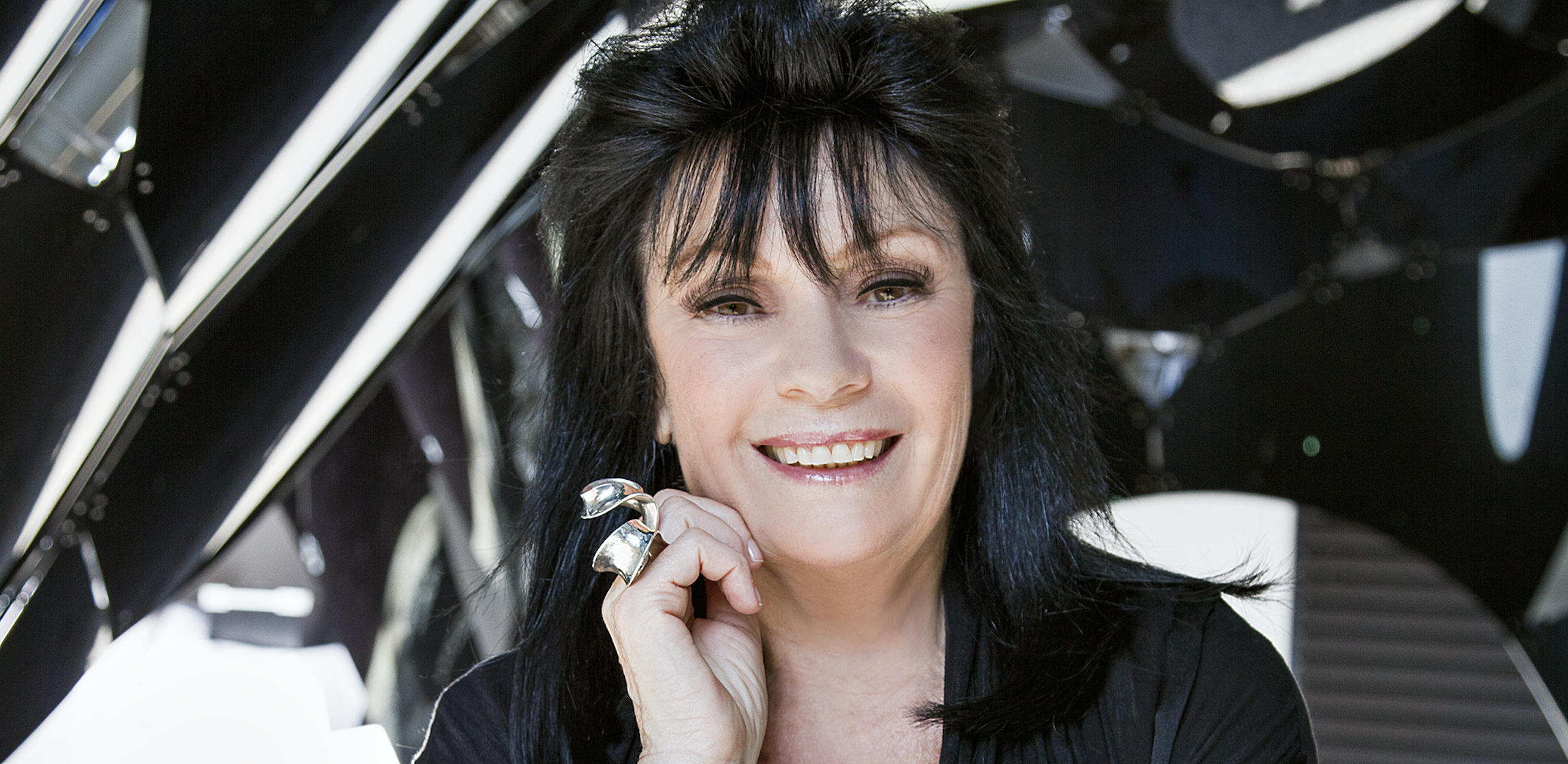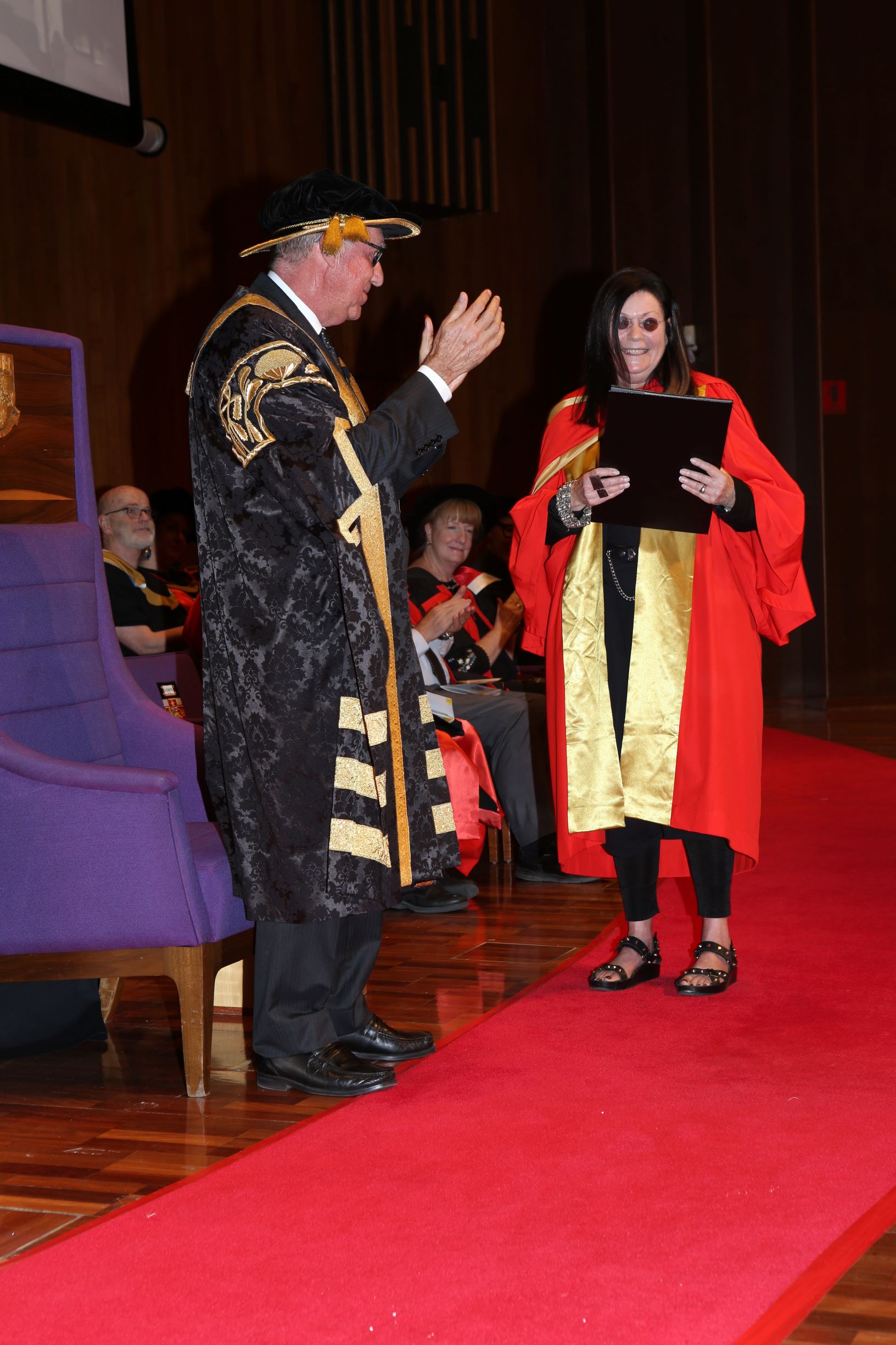
Dr Sherman receives an honorary doctorate from UNSW for her service to art and design, and her commitment to education.
Dr Gene Sherman AM insists she hasn’t led a charmed life. The decorated academic and philanthropist had to learn perseverance, she says. Life has made her more resilient and adaptable. “My trajectory didn’t just happen as I wanted it to happen. I had to force my way through multiple difficulties. Everybody in life has obstacles,” she says.
This theme of adaptability underscored Dr Sherman’s speech to the UNSW graduating class of 2019 in December. Dr Sherman received a Doctor of the University honoris causa for her service to art and design, and her commitment to education.
The art specialist from South Africa believes adaptability and risk-taking are integral to success. “More often than not, I had to start from ground zero,” she told students graduating from architecture, interior architecture, and art and design. “I didn’t make my way with the knowledge that many of you have here today.”
Since emigrating to Australia at the age of 29, she has become a leading cultural figure through her commitment to the arts.
“You have done so much for both Sydney, Australia, and – I might say – the world,” UNSW Chancellor David Gonski AC said at the ceremony.

Dr Sherman is the Founder, Executive Director and Artistic Director of the Sherman Centre for Culture and Ideas (SCCI), an organisation established in 2018 to facilitate discussion and generate ideas in fashion and architecture. SCCI holds programs and bespoke events dedicated to development within these industries.
Prior to opening SCCI, Dr Sherman founded the philanthropic Sherman Contemporary Art Foundation. The foundation provides a forum for contemporary art, and presents work by internationally recognised artists from Australia, the Asia-Pacific region and the Middle East. Its mission was shaped by her 21 years as Director of the Sherman Galleries.
Dr Sherman started her career in tertiary education. She worked as a university lecturer in South Africa and had planned to continue in Australia. Opening a gallery was “a complete side-step”, she says.
“I spent 12 years in formal study and had one vision of what I wanted to be, but circumstances forced me to take different paths. I simply had to learn to adapt.
“The fact that I’d changed countries, the fact that Australia changed orientations and started pivoting towards Asia. I re-oriented myself, worked hard and gained the appropriate credentials. The rest followed.”
This change in direction was “unusual for [her] generation”, she says. “If one aimed for an academic career, for example, one went up the ranks, published articles, got promoted (or didn't as the case might have been), but one didn’t leave the academic world to run a commercial gallery.”
In 2010, Dr Sherman was made a Member of the Order of Australia for her philanthropy and her support of the arts. The same year, she and husband Brian donated $1 million to the then-known College of Fine Arts (CoFA) at UNSW. The space opened in 2014 and their contribution was allocated to a suite of post graduate studios named after the family. The gift was given within the context of a $58 million redevelopment of UNSW Art and Design where Dr Sherman is also an Adjunct Professor.
“UNSW Art & Design is beautifully sited now that the renovations have been completed. The Paddington art precinct has been significantly upgraded with galleries, studios and top-tier facilities,” she says.
“Universities represent the most meaningful pillars of my life. Education is what drives me; both the learning that I’m able to deliver to others, and equally, or perhaps even more important, the education that I am constantly building on for myself,” Dr Sherman says. "You can't deliver learning to others if you're not learning yourself. So universities for me are symbolic of that.”
Dr Sherman has also received the Officier de l’Ordre des Arts et des Lettres (2016), and Chevalier de l’Ordre des Arts et des Lettres (2003) from the French government. She has sat on several boards during her career and is currently on London's Tate International Council.
To the next generation of artists and designers graduating, she said: “Accept in your mind the need to adapt, but also in your heart… where possible, do take calculated risks. Don’t be frightened of failure. If you learn from your mistakes, failure is actually the best teacher.”
